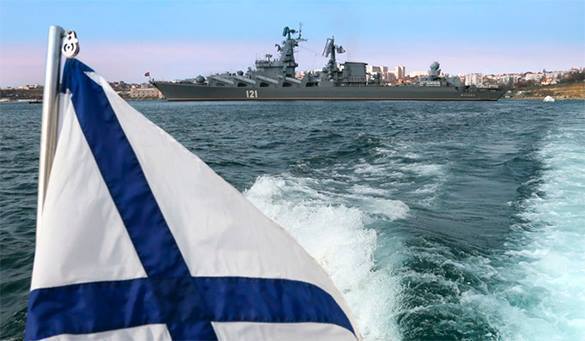Russia's only two allies: The army and the navy
Alexander III used to say that Russia has only two allies - its own army and its own navy. The All-Russian Movement for the Support of the Fleet exists for 25 years. Does Russia still have the same allies? Pravda.Ru editor-in-chief Inna Novikova asked this question to Mikhail Nenashev, the chairman of the movement.

"The fleet and the army make the backbone of Russian statesmanship. Russia has its territory owing to its fleet, both naval and river fleet. The Cossacks conquered and explored Siberian and Far Eastern territories on riverboats. Russian sailors discovered a whole continent to the world - Antarctica."
"Where is the cradle of the Russian fleet? It is in Voronezh, Arkhangelsk, St. Petersburg? Each of these cities have their own version of the history of the Russian navy."
"History is not mythology. History is based on facts. Peter the Great decided to build our first fleet - about 30 vessels - on the Voronezh River. It goes about the Russian navy. Russia had had the river fleet long before Peter the Great. The regular Russian Navy has its origins in Voronezh, and Arkhangelsk became Russia's shipbuilding center some time later.
"Peter the Great turned to Europe when he was building the Russian navy. Was Russia too far behind?"
"Navy is always a combination of competencies, as they say. The first Russian ship, the Oryol, was launched on the Oka River in Dedinovo, not far from Moscow. The ship was built without the use of Western technologies, as we would say now. To build warships, Peter the Great invited experienced people from abroad and asked them to teach Russian shipbuilders. Shipbuilding is an international business. Russia has taken a lot from the experience of other countries."
"What Russia is doing today in the Mediterranean Sea evokes the feeling of pride. We can be proud of the fact that we have been able to revive our navy after all the shocks during the 1990s and the 2000s. Today, Russia launches two or three vessels a year and modernise dozens of others. Russia has not seen such a development in decades.
"Look at our Admiral Kuznetsov aircraft carrier. There are just a few countries in the world that can build and maintain such large vessels. Skeptics would say that this is a very old vessel. However, the life of a ship is not measured by "human" years. Thirty years for such a large ship is not an age at all. There are even older ships in other countries' navies - some of them were built 50 years ago, but they are still up and running. As for the river fleet, there are 100-year-old ships navigating on the Rhine and the Danube.
"It is very important that Russia can build aircraft carriers. Secondly, we are able to teach others how to use these vessels. The story of the French Mistral ships has taught a good lesson to Russia. We did not need those warships at all. Russian experts were relieved when it was finalised that the French vessels were not going to arrive in Russia.
"Mistral helicopter carriers are vessels for long-distance expeditions. This is a vessel of expansion. Yet, no one knew where Russia was going to expand. The whole Mistral deal was based on politics."
"What is the purpose of the Russian Mediterranean campaign? Are we demonstrating force?"
"The Admiral Kuznetsov aircraft carrier and its support group execute the tasks that had appeared long before the war in Syria. The Pyotr Velikiy cruiser also fulfils a number of complex tasks, including missile defense, anti-submarine and anti-sabotage protection. Russia was doing this long before the war in Syria and we will continue doing it afterwards. The Mediterranean is a region of Russia's influence - Russia has been present in the region since the days of Fyodor Ushakov."
Pravda.Ru
Interviewed by Inna Novikova
Read article on the Russian version of Pravda.Ru
Subscribe to Pravda.Ru Telegram channel, Facebook, RSS!


